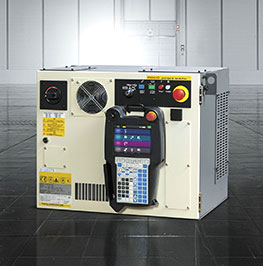

Sau . 02, 2025 17:42 Back to list
The Significance of Scrap Metal Hammer Mills in Recycling
In the ever-evolving world of recycling, the importance of effective machinery cannot be overstated. Among the various devices used in metal recycling, the scrap metal hammer mill stands out as a crucial piece of equipment responsible for the efficient processing of scrap metals. These machines not only aid in the efficient recycling of metal but also contribute to the overall sustainability of our economy and environment.
Understanding Hammer Mills
A hammer mill is a type of crusher that utilizes high-speed rotating hammers to grind down material. In the context of scrap metal recycling, these machines are specifically designed to process various kinds of metal, from aluminum and copper to steel and iron. The hammer mill works by feeding scrap metal into the machine, where it is struck by hammers at high speeds. This action pulverizes the metal into smaller, manageable pieces, making it easier to handle, transport, and further process.
The Process of Metal Recycling
Recycling metal not only conserves natural resources but also significantly reduces energy consumption compared to producing new metal from ore. The recycling process typically starts with collecting scrap metal, which can come from various sources, including manufacturing leftovers, old vehicles, appliances, and construction debris. Once collected, the scrap is sorted based on its type and quality.
The role of the scrap metal hammer mill comes into play after sorting. Once the scrap metal is fed into the hammer mill, the hammers break it down into smaller pieces. This size reduction is pivotal because it increases the surface area of the metal, allowing for more efficient separation of impurities and enhancing the overall quality of the recycled material.
Advantages of Using Hammer Mills in Metal Recycling
1. Efficiency Hammer mills operate at high speeds, making them incredibly efficient in processing large volumes of scrap metal quickly. This efficiency not only speeds up the recycling process but also reduces the operational costs associated with metal recycling.
2. Versatility One of the most remarkable aspects of hammer mills is their versatility. They can process a wide range of metals, including ferrous and non-ferrous materials. This flexibility makes them ideal for recycling centers that handle diverse types of scrap metal.

3. Improved Purity The crushing and grinding action of hammer mills often leads to a more uniform particle size, which can significantly enhance the purity of the recycled metal. Cleaner metals are more desirable in the market, commanding better prices and minimizing the environmental impact.
4. Reduced Waste By transforming large volumes of scrap metal into smaller particles, hammer mills significantly minimize waste. This smaller size allows for more efficient packing and transportation, ultimately leading to reduced landfill use and better resource management.
Challenges and Considerations
Despite their numerous advantages, the use of hammer mills in scrap metal recycling is not without challenges. One of the primary concerns is the wear and tear on the hammers, which can lead to increased maintenance costs and downtime. Regular maintenance and timely replacement of worn parts are essential to ensure optimal performance.
Moreover, while hammer mills are excellent for reducing metal size, they might not be the best solution for every application. Some materials may require different types of processing equipment, such as shears or granulators, to achieve the desired results.
The Future of Metal Recycling
As we move towards a more sustainable future, the role of scrap metal hammer mills will become increasingly significant. Innovations in technology may lead to more advanced hammer mills that enhance efficiency, reduce energy consumption, and minimize environmental impact even further.
The scrap metal industry's continuous evolution means that adopting such technologies will be vital for recyclers looking to stay competitive. Investing in quality hammer mills allows recycling facilities to optimize their operations, benefit from higher recovery rates, and contribute positively to the circular economy.
In conclusion, the scrap metal hammer mill plays an indispensable role in the recycling process, facilitating the efficient breakdown of scrap metal and promoting sustainability in an increasingly resource-constrained world. By harnessing the power of these machines, we can advance our efforts in recycling metal and ensuring a greener planet for future generations.
Latest news
The Future of Metal Recycling: Revolutionizing Waste Management
NewsMay.14,2025
Optimizing Waste with Recycling Lines
NewsMay.14,2025
Municipal Solid Waste Sorting Line: Revolutionizing Waste Management
NewsMay.14,2025
Metal Shredders: Essential Tools for Efficient Recycling
NewsMay.14,2025
Maximize Your Profits with a Copper Wire Granulator
NewsMay.14,2025
Home Metal Shredder: A Smart Choice for Your Home Recycling Needs
NewsMay.14,2025